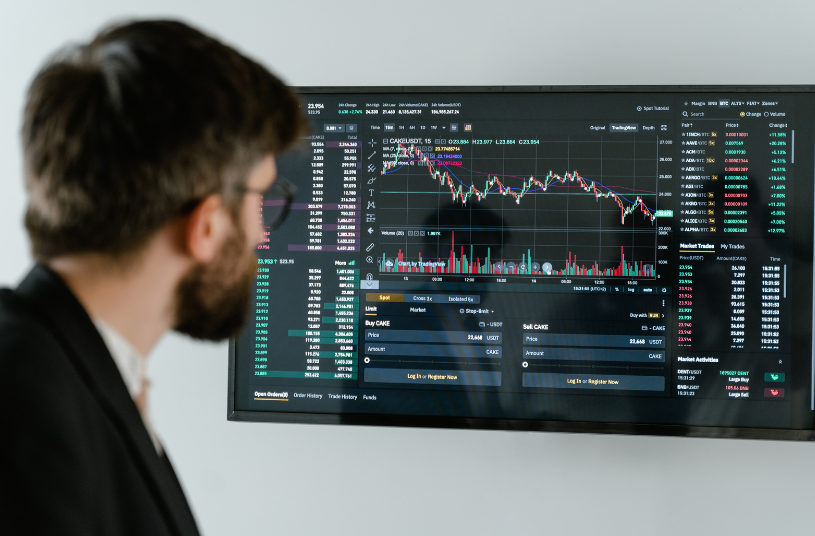
What is Spread in Forex?
The foreign exchange market, also known as forex, is the largest financial market globally, enabling the trading of currencies. Every forex trade involves a hidden cost called the “spread.” This is the difference between the price a currency dealer is willing to buy your currency for (bid price) and the price they’ll sell you another currency for (ask price). This article dives into the world of forex spreads, explaining how they work, their different types, and how they impact your trading.
For a more detailed explanation of What is an ECN, please refer to this article.
How is the Spread in Forex Trading Measured?
The forex spread is the difference between the bid price (the price at which a broker is willing to buy a currency pair from you) and the asking price (the price at which a broker is willing to sell you a currency pair). Forex traders typically measure this difference in pips. Pips are the smallest units by which a currency pair’s price can change. For most major currency pairs, one pip is equal to 0.0001, while for the Japanese Yen (JPY) pairs, it’s 0.01.
Imagine you see a EUR/USD quote at 1.1234 (bid) and 1.1235 (ask). In this scenario, the dealer is offering to buy Euros from you at 1.1234 and is charging you 1.1235 to sell you US Dollars. This 0.0001 difference between the buy and sell price is the spread. This means you pay a bit extra (the spread) to buy Euros compared to the price at which the broker is willing to buy them from you.
What Is Spread In Forex And How Much Does It Cost to Trade Currency?
The forex spread is like a built-in commission you pay when buying or selling currencies. It’s the difference between the price a dealer is willing to buy from you (bid price) and the price they’ll sell to you (ask price). Think of it like buying candy at a store – they won’t pay you the same price they sell it for!
If you want to know more about EnviFX Illegal, check this article.
Currency dealers use pips to measure the spread, which are tiny increments in the price of a currency pair that can jump. For most currencies, a pip is 0.0001, like one penny out of ten thousand dollars.
In simpler terms, you pay a tiny bit extra to buy Euros compared to what the dealer would pay you if you sold them.
For a more detailed explanation of WebTrader, please refer to this article.
What Types of Spreads are in Forex?
There are two main types of spreads in forex trading: fixed spreads and variable spreads.
What are Fixed Spreads in Forex?
There are two main ways forex spreads work: fixed and variable.
Fixed Spreads: These are like a flat fee, no matter what’s happening in the market. They’re easy to understand but might be a bit more expensive, especially when things get busy.
Variable Spreads: These change depending on how active the market is. When there’s a lot of buying and selling (high liquidity), the spread can be very small, saving you money. But during slow periods (low liquidity), the spread can widen, costing you more. Further information on EnviFX Reviews can be found here.
What are the Advantages of Trading With Fixed Spreads?
- Predictability: Fixed spreads allow you to plan your trading costs more effectively.
- Simplicity: There’s no need to constantly monitor market conditions to understand your trading expenses.
- Suitable for beginners: Fixed spreads can be easier to grasp for new forex traders.
Are there Disadvantages of Trading With Fixed Spreads?
- Potentially higher costs: Fixed spreads might be wider than variable spreads, especially during volatile market conditions.
- Limited flexibility: Brokers offering fixed spreads may not provide the tightest spreads available.
 What are Variable Spreads in Forex?
What are Variable Spreads in Forex?
Variable spreads fluctuate based on market liquidity. During times of high liquidity, the spread can be very tight (narrow), offering potentially lower trading costs. However, during periods of low liquidity, the spread can widen significantly, increasing your transaction expenses.
What are the Advantages of Trading With Variable Spreads?
- Potentially lower costs: Variable spreads can be tighter than fixed spreads, especially in high-liquidity markets.
- Flexibility: You can potentially benefit from tighter spreads during favorable market conditions.
What are the Disadvantages of Trading With Variable Spreads?
- Unpredictability: The variable nature of spreads makes it difficult to precisely calculate your trading costs in advance.
- Potential for wider spreads: Low market liquidity can lead to significantly wider spreads, impacting your profitability.
Fixed vs Variable Spreads: Which is Better?
The choice between fixed and variable spreads depends on your trading style and preferences. Here’s a quick breakdown to help you decide:
- Fixed spreads: Ideal for beginners who value predictability and ease of use, even if it comes at the cost of potentially higher fees.
- Variable spreads: More suited for experienced traders who can take advantage of tighter spreads during market liquidity and are comfortable with the element of cost uncertainty.
 What is spread in forex: Spread Costs and Calculations
What is spread in forex: Spread Costs and Calculations
When calculating the impact of spreads on your forex trades, remember to factor in the spread amount (in pips) multiplied by the trade size (in lots). This will give you the total spread cost for that particular trade.
For example, if you buy 1 standard lot (100,000 units of base currency) of EUR/USD with a spread of 2 pips (0.0002), your total spread cost would be 2 pips * 100,000 = $20.
By understanding forex spreads and their types, you can make informed decisions when choosing a broker and planning your trades. Remember, keeping your trading costs low is crucial for long-term success in the forex market.
